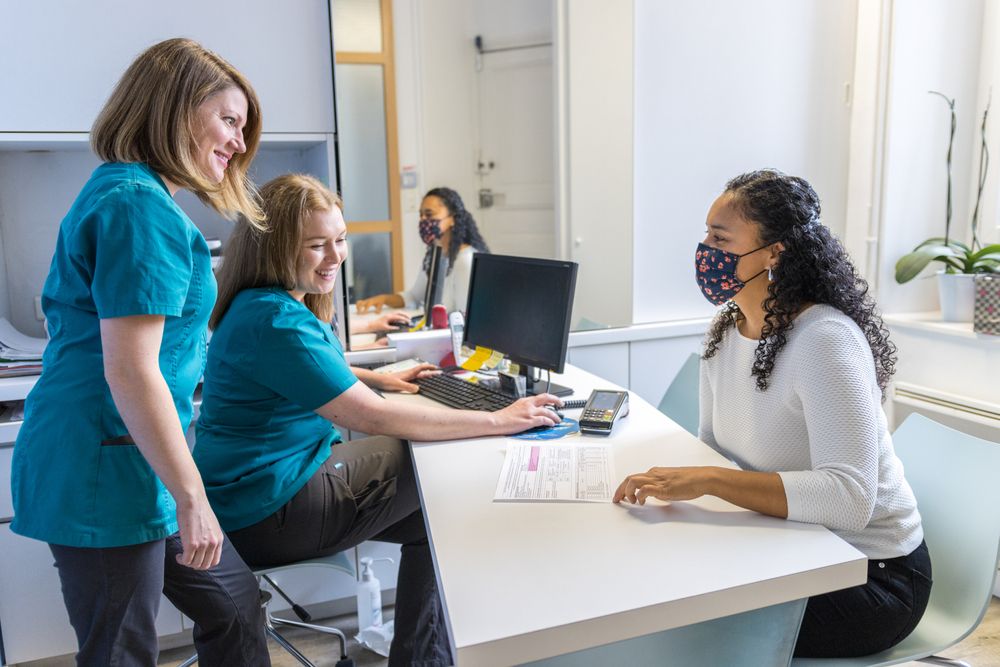Your receptionist is an integral part of your dental practice and patient experience. They are the first person a potential patients talks to, they welcome patients and they are they are the last person your patients see as they walk out the door. Your receptionist is creating the first impression and often the last impression people have of your practice, your team, and your professionalism.
Clarify Your Needs
Does your receptionist have a detailed job description which clarifies the personality type and skills required to fulfil the job.
You need a warm, friendly professional who can put people at ease and help them get the dental care and service that they deserve.
Craft a Creative Ad
Include the role and the responsibilities of the position – and the preferred personality type. It’s important to include specific instructions such as to attach a cover letter and a resume when applying.
Evaluate CV’s
Categorise the CV’s into three files, filtering out those with spelling mistakes or don’t meet your requirements.
Conduct a Phone Interview
One tip commonly given to receptionists is to smile while on the phone. This gives off a more friendly voice. Observe whether the candidate is smiling while speaking during an interview. If so, try to give a more challenging question and see if they keep the same disposition. This may provide you with some insight of how they will act when encountering a difficult patient either on the phone or in person.
In addition, a good dental receptionist can instantly spot (or hear on the phone) the personality type of a patient and then know exactly how to deal with the patient’s needs.
Your receptionist will be on the phone all day, so it’s vital they have excellent phone skills. Is the candidate articulate? Do they come across as warm and friendly? Why have they applied for the job? This will help you know if the candidate is interested in the position for the right reasons, or if she was just applying for any job she saw.
Pay Attention during the In-Person Interview
It’s important to look the candidate in the eye and form an initial impression. Is the candidate professional and composed? Are they engaged in the discussion?
Do you end the first interview feeling like this is somebody you would want to work alongside for the next 10 years?
Conduct a Second In-Person Interview
“What are some of the things that are important to you in a team?” and “What makes a good work environment.” You might want to set scenarios to see how they handle certain situations.
Involve Team Members
Sometimes candidates will say something to a peer that they won’t say to the hiring manager. Invite your key team leaders to meet the candidate for their feedback. Also, the team members can give their impressions of the candidate’s skills, friendliness, energy, and chemistry. The decision of who to hire will affect them just as much as it affects you.
Make a Good Offer
The receptionist position is often seen an entry-level and isn’t paid very well. However, a great receptionist is going to facilitate more callers to schedule appointments, which generates more revenue for your practice.
Your dental receptionist sets the stage for the experience your patients will have in your office. Take the time to hire a great receptionist and you, your team, and your patients will all benefit.
